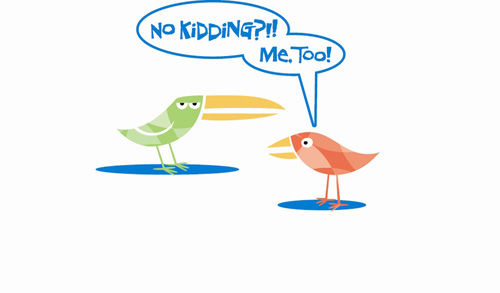Actor’s group removes mental illness stigma
September 10, 2008
You’re depressed? No kidding? Me too!
This catch-phrase became the foundation for actor Joe Pantoliano’s organization No Kidding, Me Too, which reaches out to people with mental illnesses.
Inspired by his caretaker role in Joseph Greco’s 2006 film “Canvas,” Pantoliano launched No Kidding, Me Too in hopes of removing the stigma attached to mental illness.
“It’s going to add to our awareness and get rid of ignorance,” Pantoliano said.
Having had past experiences with mental illness himself, Pantaliano wants to connect all people who are “touched with the fire.”
Get The Daily Illini in your inbox!
On campus, the most common mental disorders where medication is involved include generalized anxiety disorders and depression, said McKinley Health Center Dr. David Lawrance. Adjustment reactions and relationship problems are common issues too.
“Throw people into a new situation, and sink or swim, sometimes we can feel like we’re drowning,” Lawrance said.
Lawrance encourages counseling as a form of treatment. Talking to a professional helps students learn a lot about themselves, Lawrance said.
“The hurdle to see what we’re all about is no higher than one’s shoelaces,” Lawrance said.
Pantoliano understands this need for communication as well, which is why one of No Kidding, Me Too’s major projects is a web-a-thon dialogue on the organization’s Web site — NKM2.org. Anyone can go on and ask health questions or just talk to people with similar experiences. This way, people won’t have to turn to drugs or alcohol, Pantoliano said.
“You need to start a dialogue,” Pantoliano said. “You find a group and you need to talk on a regular basis and have an understanding with each other.”
Pantoliano stresses that a mental disease is simply a “dis”-“ease” of the brain. He is also passionate about the political rights of the mentally ill. Because mental illness is harder to diagnose than a physical illness, many people affected by mental illness are in financial trouble, Pantoliano added.
“We want to have the brain have equal rights as the kidney, as the heart,” Pantoliano said.
For students, the University uses the student health service fee to provide free counseling and psychiatric visits. Also, prescriptions used to treat a mental illness can be attained at the McKinley pharmacy for as low as $5. In a university setting, students have more access to mental health care than an average person, Lawrance said.
No Kidding, Me Too’s current project is a documentary displaying people who have been diagnosed with a mental illness and are still living full and complete lives. A teaser of the documentary was shown at the Democratic and Republican National Conventions and received “rave reviews,” said Lauren Millner, No Kidding Me Too’s director of special projects and events. Pantaliano said he wants the support of both parties on what he called “not a Democratic issue, not a Republican issue, but an issue.”
“The goal is to show hope and promise,” Millner said. “The documentary is sensitive and funny, and the goal is for people to leave with a good positive feeling. A feeling that they don’t have to be ashamed.”
Actress Sally Field was awarded the first No Kidding, Me Too award in May for her passionate work to remove the stigma of mental illness. Other entertainers in No Kidding, Me Too include James Cameron, Robert Downey Jr., Devon Gearhart and Robin Williams.
Gearhart portrayed the son in “Canvas” and admires Pantoliano’s dedication to the organization.
“He’s just really funny with a big heart,” Gearhart said. “I learned a lot about acting and I became more experienced while working with him.”
Pantoliano encourages everyone to take action and help remove the stigma, whether it is by helping a friend or not being afraid to get help yourself.
“I want to help. I want to wake people up,” Pantoliano said. “I want to make it cool to be crazy.”







